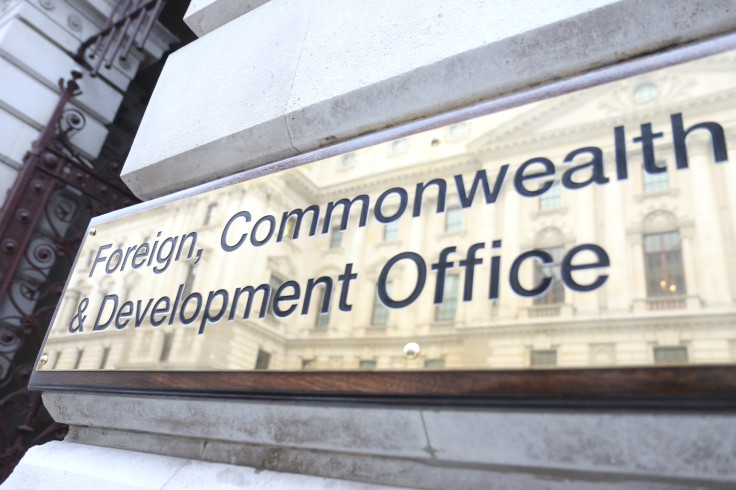Report highlights failures of FCDO over state hostage-taking
A report published by the Foreign Affairs Committee recommends new measures to deal with state hostage-taking, including the appointment of a new director.

A report published by the Foreign Affairs Committee addresses the issue of state hostage-taking, also known as arbitrary detention. The full report, "Stolen Years: combatting state hostage diplomacy", finds the UK government lacking in its responses to state hostage-taking.
Chair of the Foreign Affairs Committee, Alicia Kearns MP, explains that "abductor states weaponise the citizenship of British nationals to achieve their geopolitical goals." She goes on to say that on the issue of "state-level hostage-taking," the Government is failing British citizens in its approach, with "ministerial clumsiness" and "avoidable errors" reported by detainees and their families.
The report also notes evidence of the "inhumane" treatment of hostages, including (amongst other things) drugging to the point of addiction, months in solitary confinement, and both psychological and physical torture.
Notable cases include that of Anoosheh Ashoori who was arrested in Iran and accused of spying for Israel. The report mentions his case, alongside that of Nazanin Zaghari-Ratcliffe, explaining that while it was an achievement to secure their releases, criticism suggests that the government should have been faster in doing so.
Hostage-taking on the increase
The report explains how state hostage-taking is on the increase internationally. Information on the number of UK citizens taken hostage is unavailable to the public, with ministers only prepared to present limited information.
However, the report references US statistics, noting how the average number of US nationals "wrongfully detained" each year increased 175 per cent from four between 2001-2011 to 11 between 2012-2022. Whilst constrained access to data on state hostage-taking is an empirical limitation, the report concludes state hostage-taking is growing as an international issue.
Furthermore, the UN Working Group on Arbitrary Detention faces an accumulation of cases according to the report. Also mentioned are comments made to parliament in February 2023 by MP and Security Minister Tom Tugendhat. He stated that from the start of 2022, the UK government faced "15 credible threats to kill or kidnap British or UK-based individuals."
The trend of increasing hostage-taking over the two decades perhaps reflects an increasingly competitive international order less dominated by the US and the West, and more conducive to inhumane forms of statecraft.
Treating families as partners and "quiet diplomacy"
According to the report, families of detainees should be "treated as partners" who have the potential to make positive contributions to the resolution of detentions. The report advocates frequent briefings by the FCDO with the families of those detained.
The report explains how the FCDO has a preference for "quiet diplomacy" in dealing with hostage-taking. This entails appealing on "humanitarian grounds," and raising multiple objections through diplomatic channels in response to abuses of human rights and the right to a fair trial. It also entails requesting that foreign governments adhere to their own rules and legal practices.
A key element of quiet diplomacy, albeit a controversial one, is the implicit preclusion of "going public" amongst stakeholders about specific cases. The then Foreign Secretary Liz Truss told the committee that "sometimes publicity does not help." She explains that the release of Nazanin Zaghari-Ratcliffe and Anoosheh Ashoori was achieved through "a lot of quite low-key work."
Going public could create publicity that benefits the propaganda of hostage-taking regimes. For example, through messaging that emphasises the significance of the detainee. Going public could also have implications for detainee welfare.
However, the report concludes that the assumption that the silence of families is always the best option is incorrect. On the contrary, publicity can facilitate scrutiny amongst the international community that results in greater safety for detainees, as well as negative publicity for hostage-taking regimes which can be used to incentivise the release of detainees.
The report advocates that the FCDO should consult with families on the possible consequences of going public, where it is their intention to do so, advising on the safest ways of proceeding. That is, instead of the quiet diplomacy approach which entails advising families to avoid public disclosure of the detention of their loved one altogether.
One key recommendation made by the report is for the appointment of a Director for Arbitrary and Complex Detentions (DACD), who would be responsible for delivering a fairer response to hostage taking, with better cooperation with families and within Whitehall, as well as decisiveness and adaptability in the way the government responds to state hostage-taking.
The DACD would have a direct line to the PM and act as a contact point for families, as well as taking responsibility for delivering a "cross-government response" and coordinating multi-lateral attempts to address state hostage-taking.
© Copyright IBTimes 2025. All rights reserved.





















